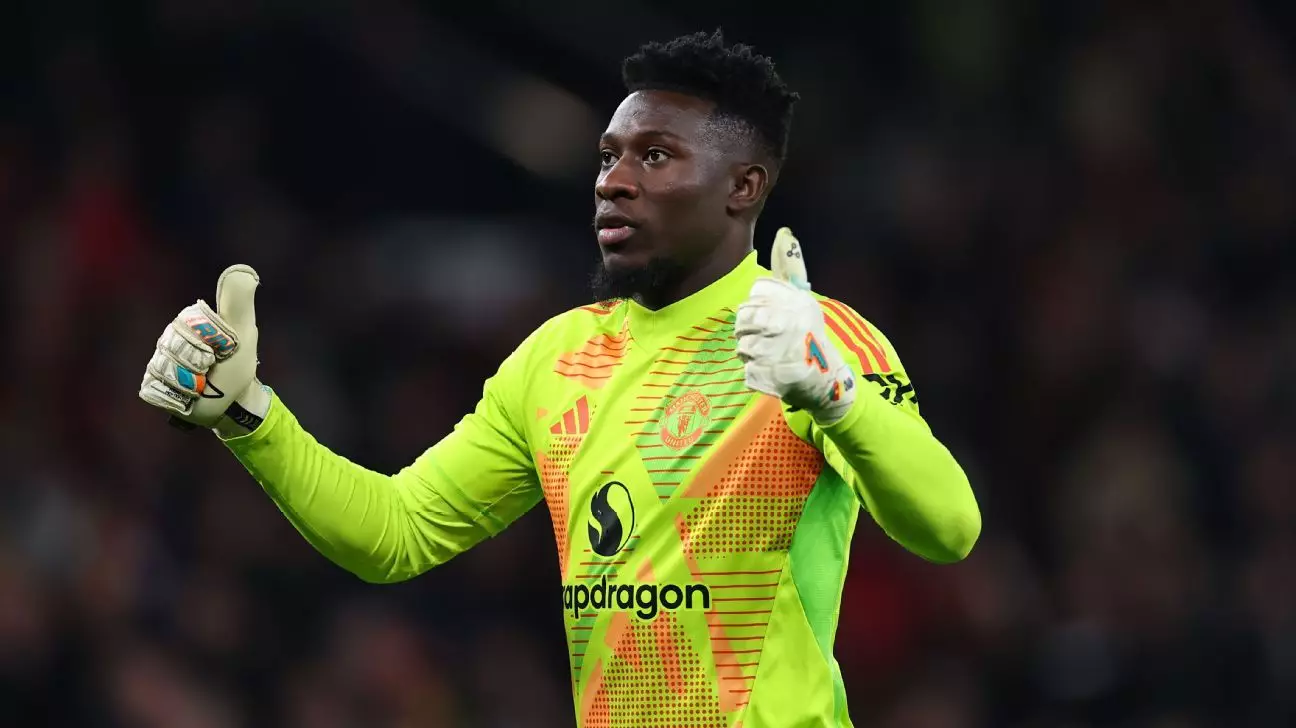On November 11, a significant shift will take place at Manchester United as Ruben Amorim officially takes the reins as head coach. The transition comes after a tumultuous period under interim manager Ruud van Nistelrooy, who temporarily filled the role after Erik ten Hag’s departure. Yet, with change inherently stirring uncertainty, key players like André Onana are already gearing up for this upcoming transformation.
Amorim, who previously enjoyed successes at Sporting CP, is widely recognized for his tactical acumen, specifically his preference for a 3-4-3 formation. Such a strategic departure from the existing 4-3-3 setup has ignited discussions about whether the squad can efficiently adapt to this new system. Amidst the speculation, Onana remains optimistic, asserting that the team’s adaptability and pragmatism will ensure a smooth transition. His confidence may energize a squad that has faced considerable scrutiny in recent times.
Systemic Shifts and Player Adaptability
Onana’s remarks signal a broader belief within the squad that embracing change is vital for professional growth. Adapting to a new tactical framework can be daunting, yet players often find a renewed sense of motivation when faced with such challenges. The commitment to fluidity—as emphasized by Onana—reflects a collective responsibility. Players are expected to cultivate versatility, which is crucial for executing Amorim’s tactical vision. The challenge lies not just in physical adaptation but also in mental readiness for a change in style and system.
Moreover, Amorim’s successful tenure at Sporting CP, evidenced by his side’s impressive 4-1 domination of Manchester City, serves as an intermediate testament to his capabilities. The ability of Amorim’s teams to perform at elite levels provides tangible reassurance for Manchester United fans, who are eager for revitalization after a series of ups and downs.
Alongside discussions of Amorim’s tactical plans, questions loom over van Nistelrooy’s future at the club. Initially stepping in to assist when Erik ten Hag was at the helm, the Dutchman’s interim role came as a surprise and has posed uncertain implications for his career trajectory. Van Nistelrooy’s lack of communication with Amorim thus far raises eyebrows about his potential involvement in the new backroom staff.
Furthermore, van Nistelrooy’s focus on the immediate task—managing the upcoming fixtures against PAOK in the Europa League—highlights his professional commitment even amidst uncertainty. The balance between preparing the team for upcoming challenges while navigating personal career concerns epitomizes the dual pressures facing interim managers in transitional phases.
In a promising development, Manchester United received a much-needed boost with the return of defender Leny Yoro to team training. The young talent’s situation underscores the challenges any squad faces—a blend of injuries and fitness levels often shapes results and performance. Yoro’s return after his lengthy rehabilitation signifies a morale boost for the team, as the squad has faced its share of struggles with injuries to prominent players such as Luke Shaw and Mason Mount.
Ruud van Nistelrooy has emphasized the club’s cautious approach concerning Yoro’s full integration back into competitive play. The need for a systematic and gradual reintroduction of players, especially those coming off injuries, showcases the long-term vision that must be prioritized as the club moves towards Amorim’s managing style.
Looking Ahead: An Intriguing Future
As Manchester United braces for the transition to Amorim’s leadership, the squad prepares to embrace unknown challenges and strategic shifts. Onana’s faith in the team’s adaptability juxtaposed with the realities of van Nistelrooy’s uncertain role encapsulates the intricate dynamics of change in professional football. With crucial fixtures approaching and the tactical structure set to evolve, Manchester United stands on the cusp of potentially revitalizing its fortunes. The next few weeks will be pivotal, not only for the team’s performance on the pitch but also for establishing a strong foundation that can sustain future success under Amorim. How well this squad adapts to change could very well determine the trajectory of their season ahead.
